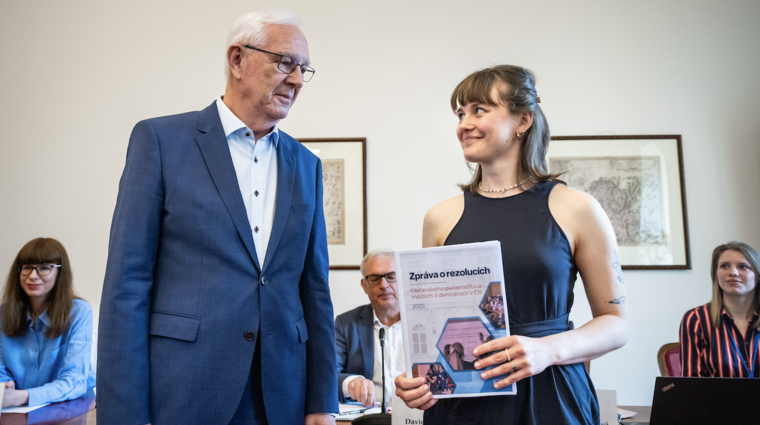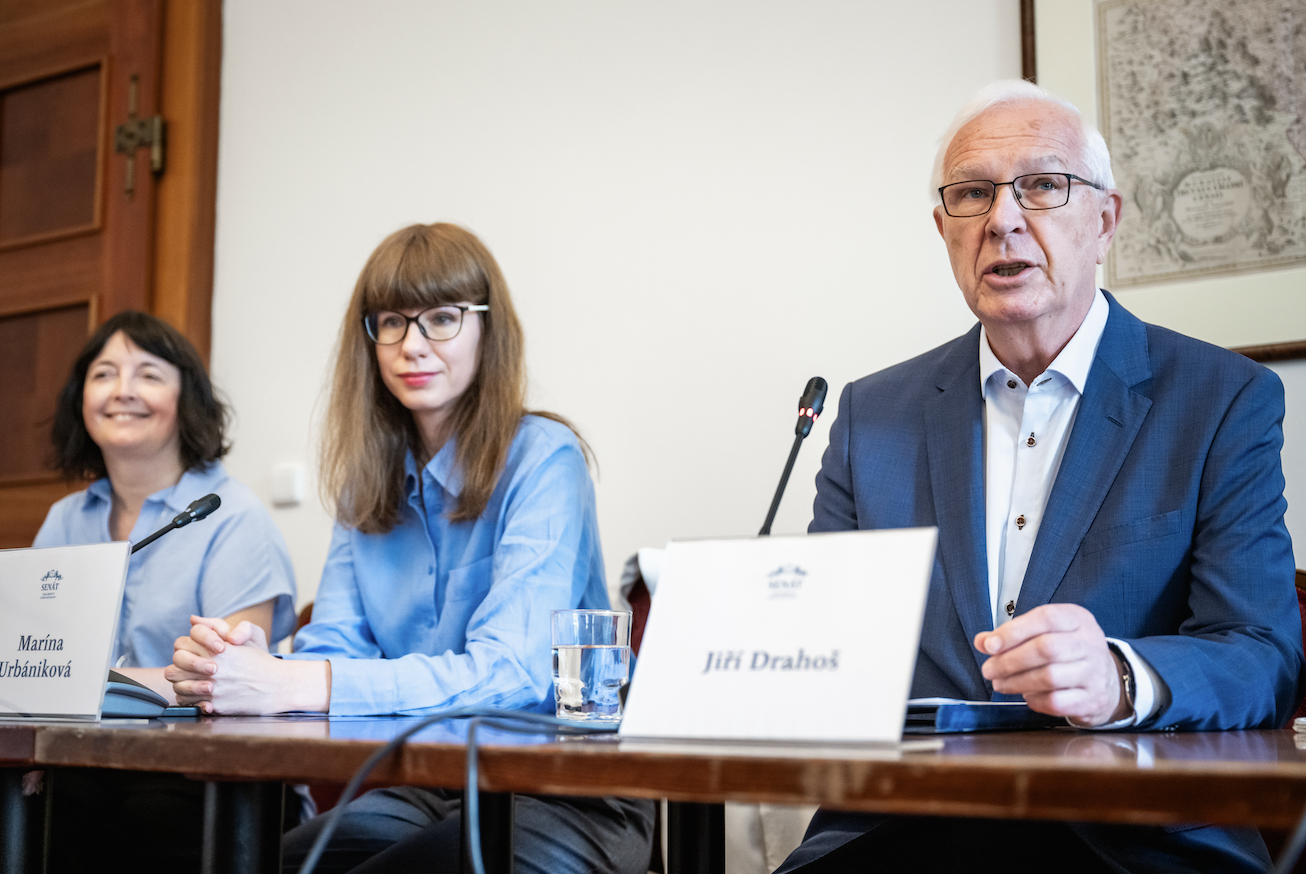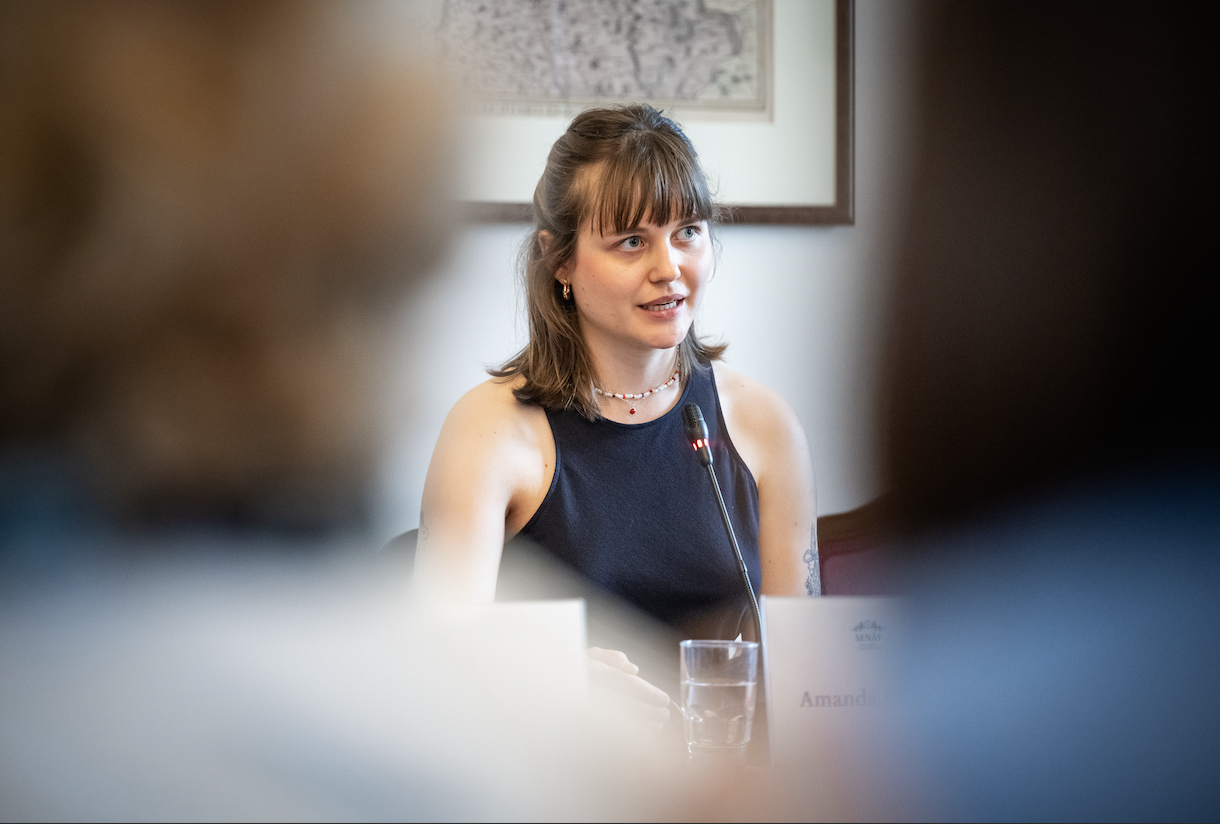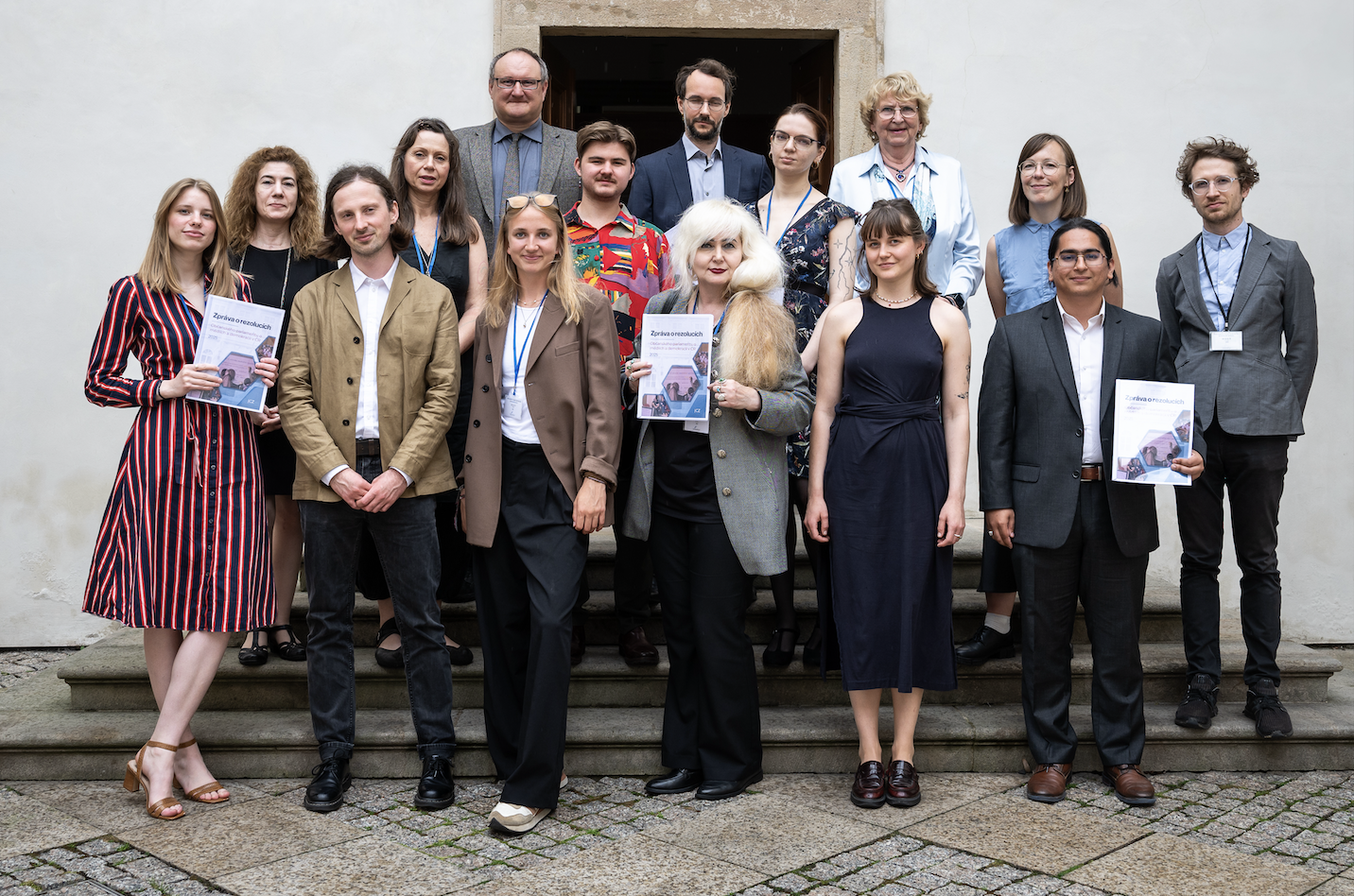The First Citizens’ Parliament on Media and Democracy in the Czech Republic Has Delivered Its Results. They Were Presented at a Roundtable in the Senate of the Parliament of the Czech Republic

The First Citizens’ Parliament on Media and Democracy in the Czech Republic Has Delivered Its Results. They Were Presented at a Roundtable in the Senate of the Parliament of the Czech Republic
Trust in media and political institutions in the Czech Republic has been low for a long time. This trend has serious consequences for the functioning of democracy, civic engagement, and the stability of society. Examples from abroad show how easily media independence can be undermined—and the Czech environment is not immune to these tendencies either. That’s why a roundtable on the protection of media and democracy was held in the Senate, under the patronage of the First Vice-President Jiří Drahoš. The event was organized by the Institute of Communication Studies and Journalism (ICSJ) in cooperation with the Endowment Fund for Independent Journalism (NFNZ)
A Bridge Between Citizens and Institutions
In 2023, trust in the media in the Czech Republic hit a record low—only 30%. In 2024, it increased by just one percentage point and still remains very low. According to a 2024 CVVM survey, only 23% of the public trusted the government, 24% trusted the Chamber of Deputies, and 32% trusted the Senate. The goal of the roundtable was not only to open a discussion about the protection of media and democracy but also to create space for the voices of citizens—voices often overlooked in public discourse.
The roundtable was opened by the First Vice-President of the Senate, Jiří Drahoš:
“Free and responsible media are one of the pillars of a democratic society. At a time when public trust in institutions, media, and politics is declining, I consider it crucial to create space for open dialogue between citizens, journalists, experts, and political representatives. Only then can we collectively seek ways to strengthen media independence, support responsible journalism, and rebuild public trust in the democratic system. I’m glad the roundtable is taking place in the Senate, which I consider to be a voice of reason and a defender of democratic values,” he stated.

Researchers Miloš Hroch and Karolína Šimková from ICSJ presented the results of the first-ever Citizens’ Parliament on Media and Democracy in the Czech Republic. This format is a way to actively involve ordinary people in public debate. It is a deliberative forum where citizens are given space to engage in in-depth discussion on crucial societal issues. The outcome is a set of concrete recommendations that can serve as a basis for political decision-making.
“Citizens’ parliaments create a platform from which the public can speak respectfully to parliaments and governments and help improve society. They are a bridge between people and institutions. I hope they will be used more often in the Czech Republic,” said Nico Carpentier, associate professor at Charles University and one of the organizers. According to him, this format has tremendous potential—and now is the time for it to become a regular part of Czech democracy.
Twenty participants put forward 31 recommendations for political and media actors. They include, for example, the creation of an open forum for media feedback, support for journalists from minority backgrounds, or reforming the election process for media councils to include expert participation. According to participant Amanda Baxová, people often feel underrepresented in the media. “It is important for civil society to become more involved in media content creation,” she said. The resolutions will also be submitted to European institutions in 2026.

Independence and Basic Journalistic Standards
Marína Urbániková from NFNZ highlighted the systemic risks threatening media independence, such as political pressure on public broadcasters or media ownership concentration:
“Although the Czech Republic ranked tenth in the latest global press freedom index, this position is fragile given the ongoing systemic risks. Some of these could be addressed by the European Media Freedom Act—but its transposition at the national level should be seen as an opportunity to strengthen media resilience, not as a formality. The Ministry of Culture and the Czech Parliament play a key role in this and should actively contribute to creating a stable and transparent media environment.”
According to David Smoljak, Chair of the Senate Standing Committee on Media, the information landscape has changed dramatically over the past decade. “Digital platforms driven by algorithms have become the mainstream media, offering personalized content regardless of its objectivity or relevance. That’s why we must support not only media independence but also the very existence of media that uphold basic journalistic standards,” he argued.
Martina Břeňová, Director of the Open Society Fund Prague, added: “Although 85% of Czechs use the internet at least occasionally, only 24% have advanced digital skills, according to our surveys—below the EU average. Many people retreat into the safety of their own bubbles and lose trust in differing opinions. Many feel lost, and this is where civil society plays a key role in promoting dialogue, critical thinking, and understanding—the foundations of a resilient and open society.”
The debate was concluded by Pavel Mička from the Office of the Government of the Czech Republic, who spoke about the possibilities of strengthening cooperation between public administration and civil society.
The conclusions of the roundtable will be reflected in policy proposals addressed to media, political institutions, and other relevant stakeholders. The discussion confirmed that the future of democracy depends on supporting independent media and fostering open dialogue between the state and society.
You can download the resolutions created within the Citizens’ Assembly on Media and Democracy here.



